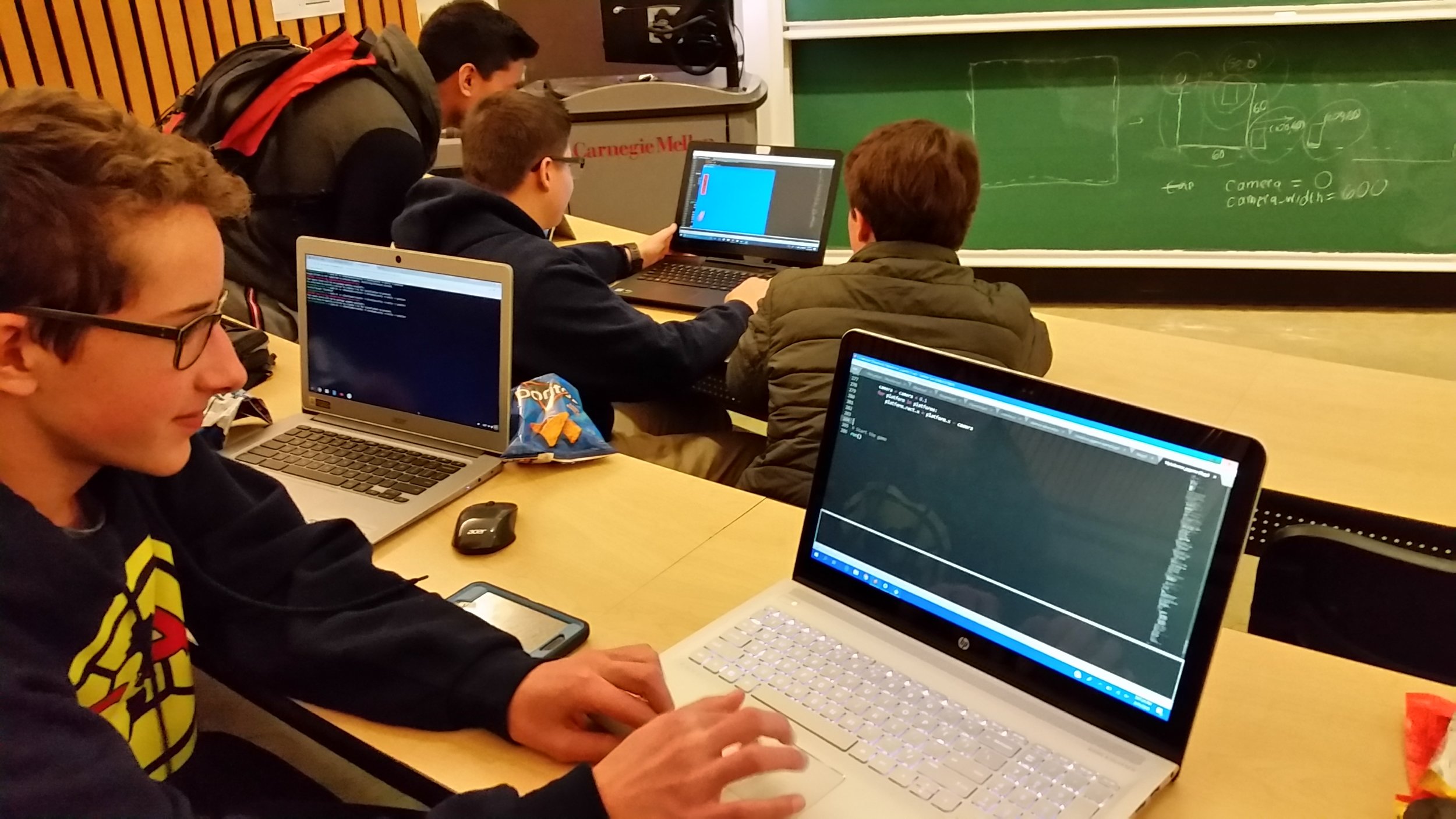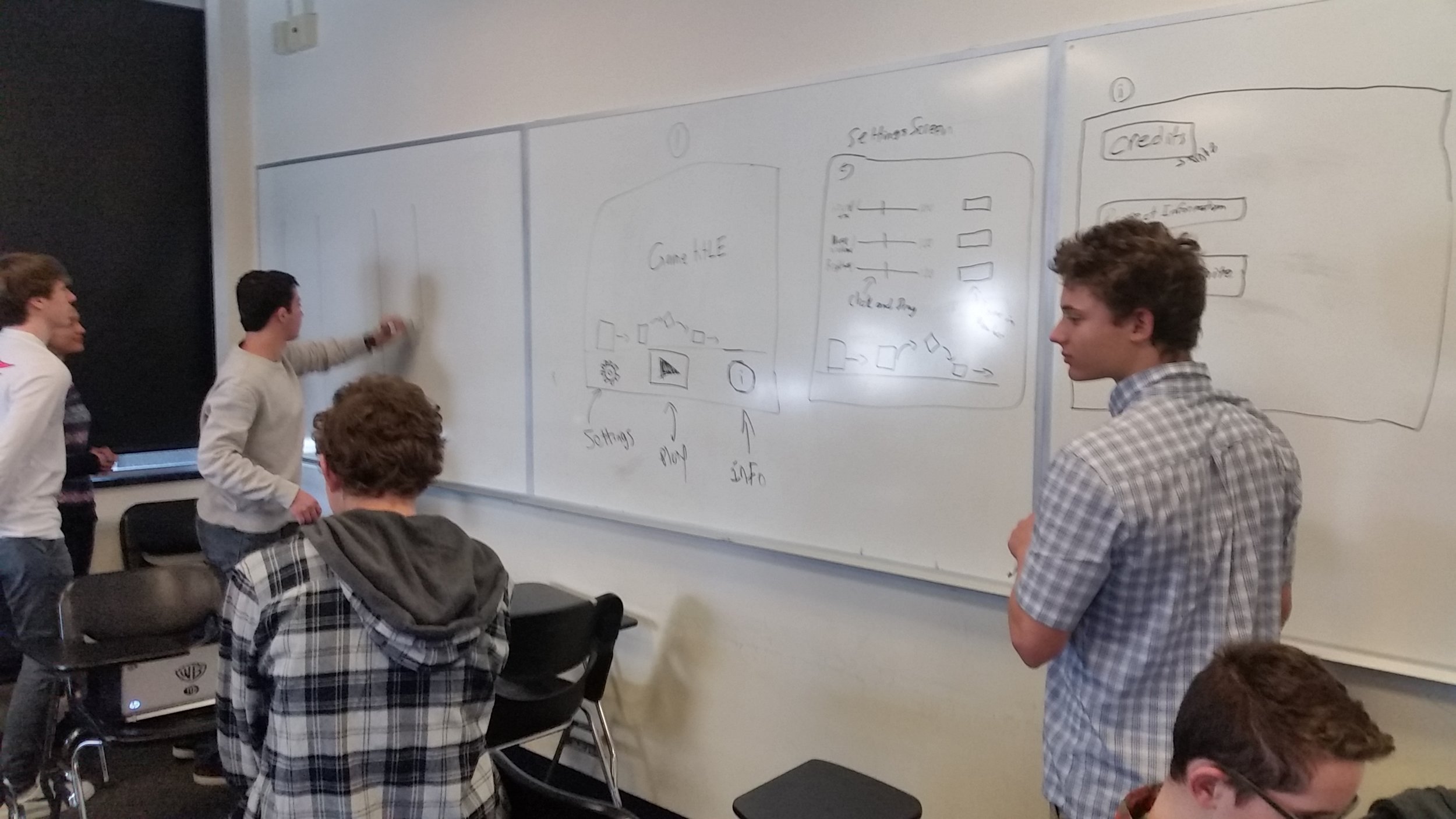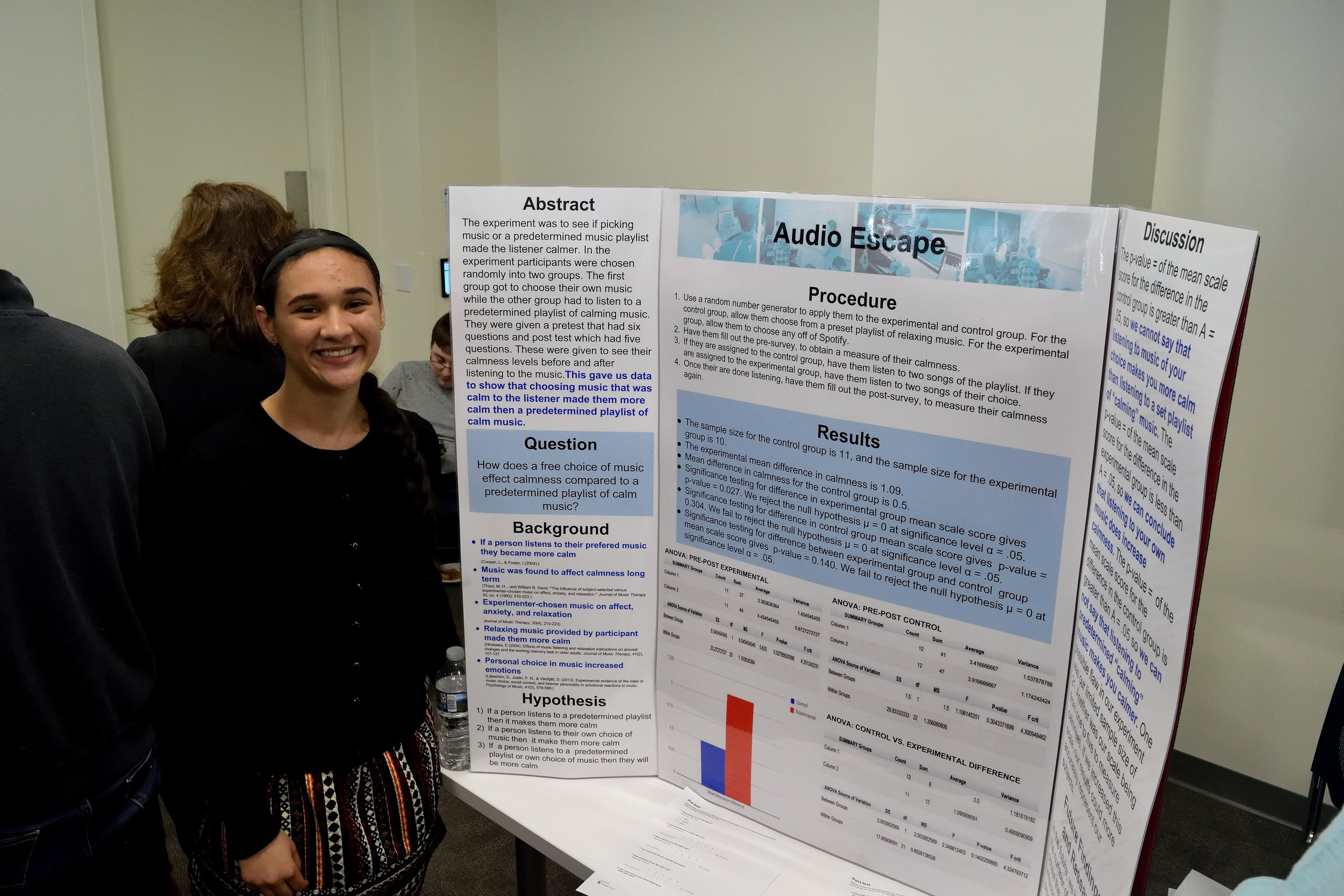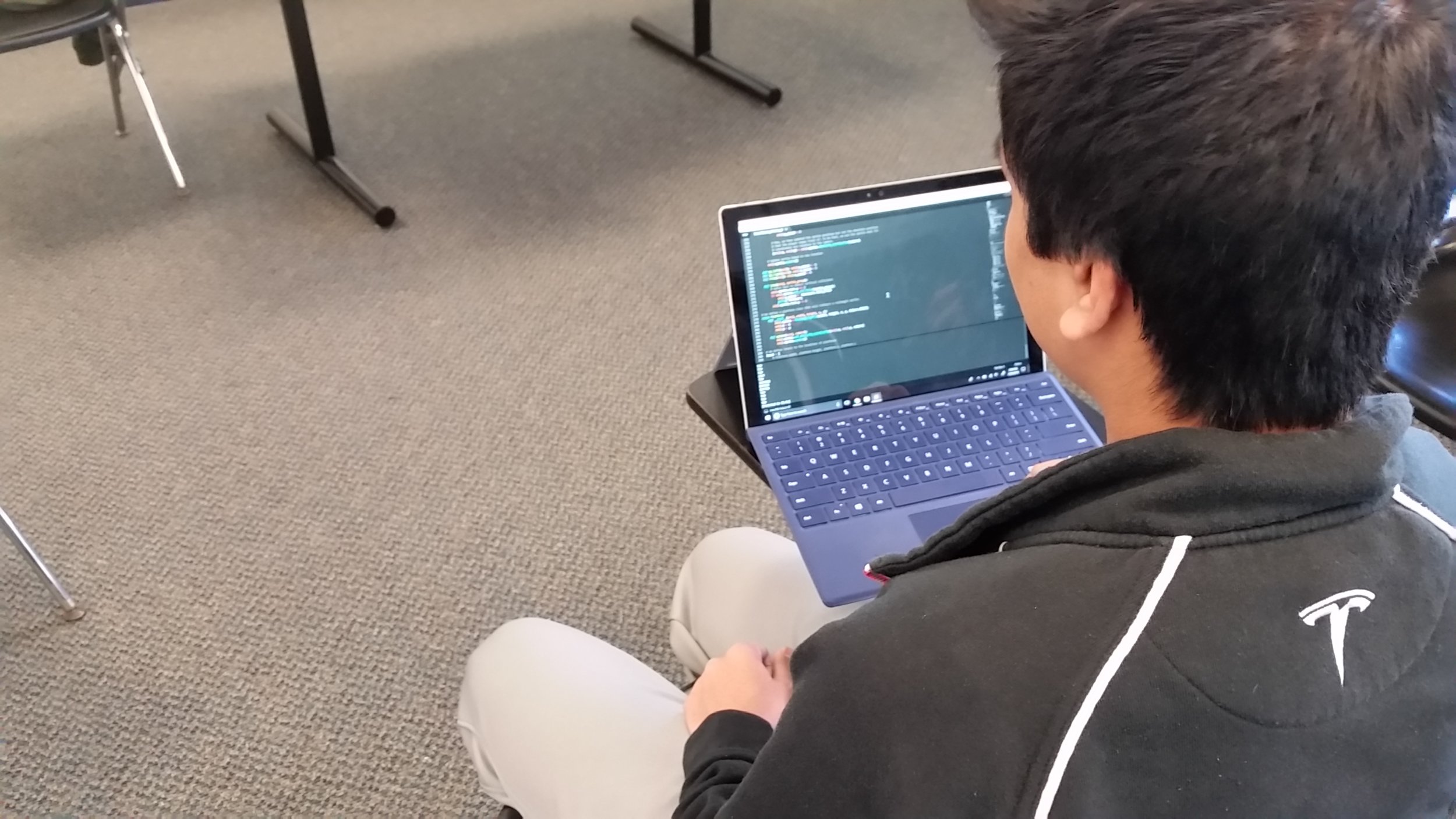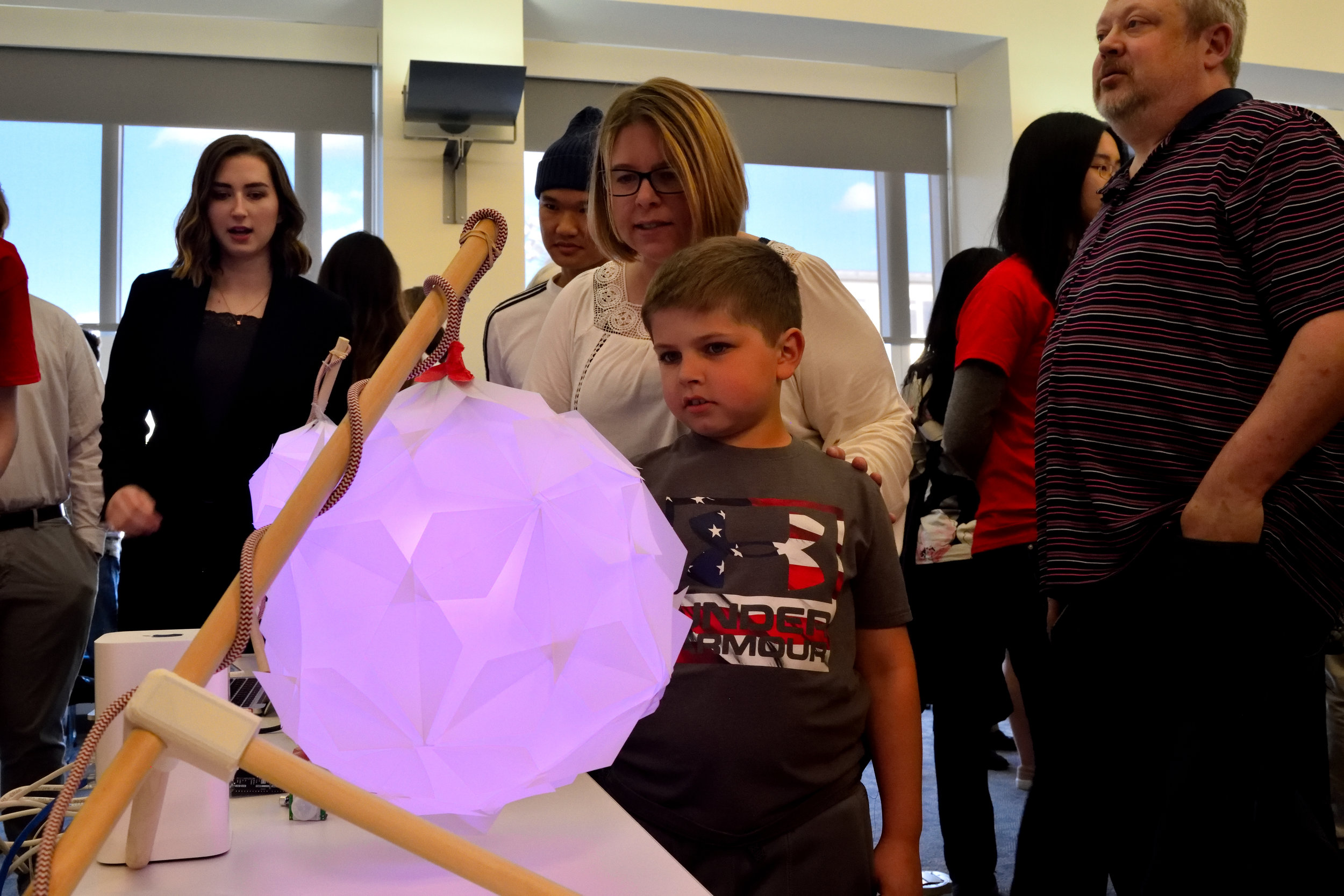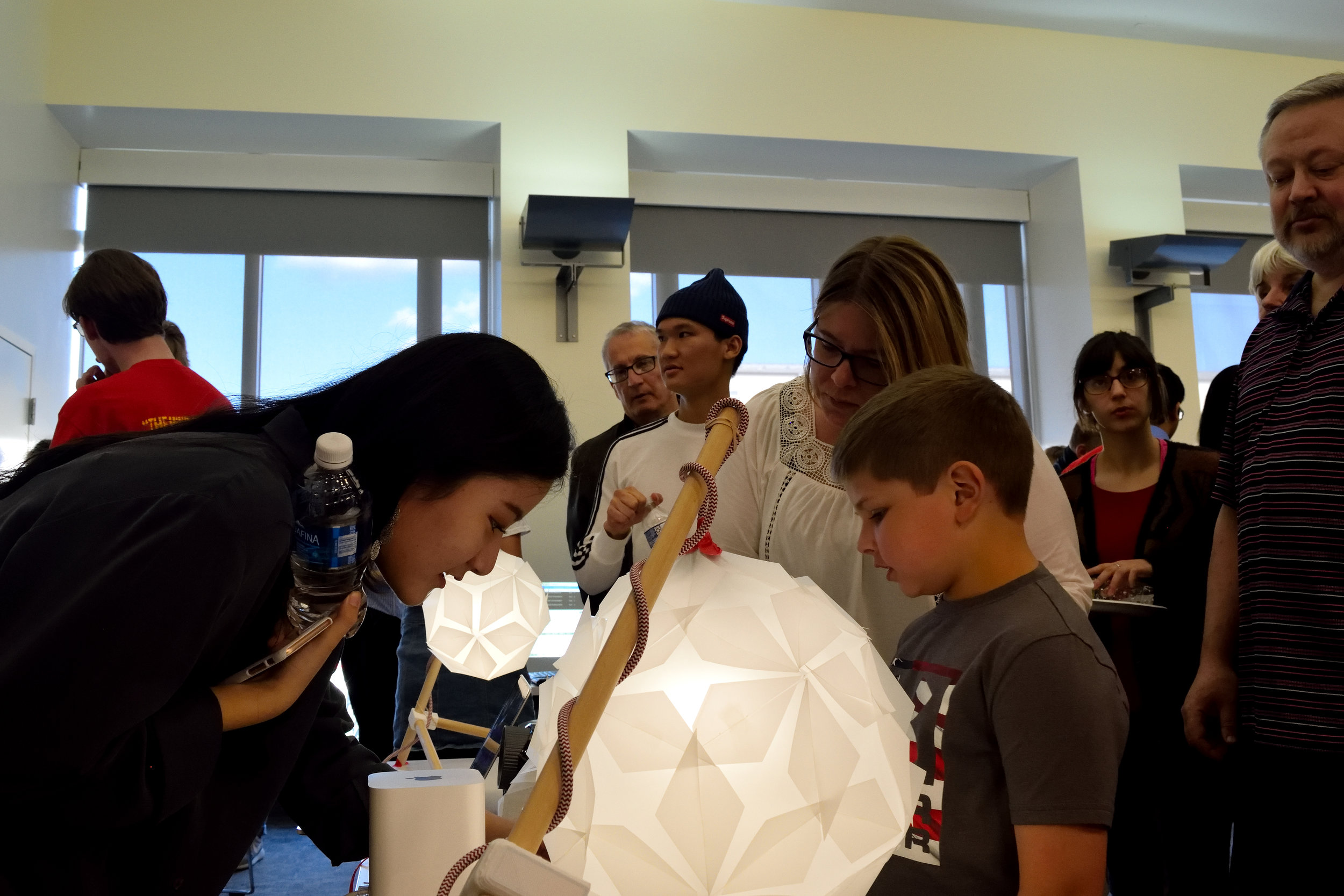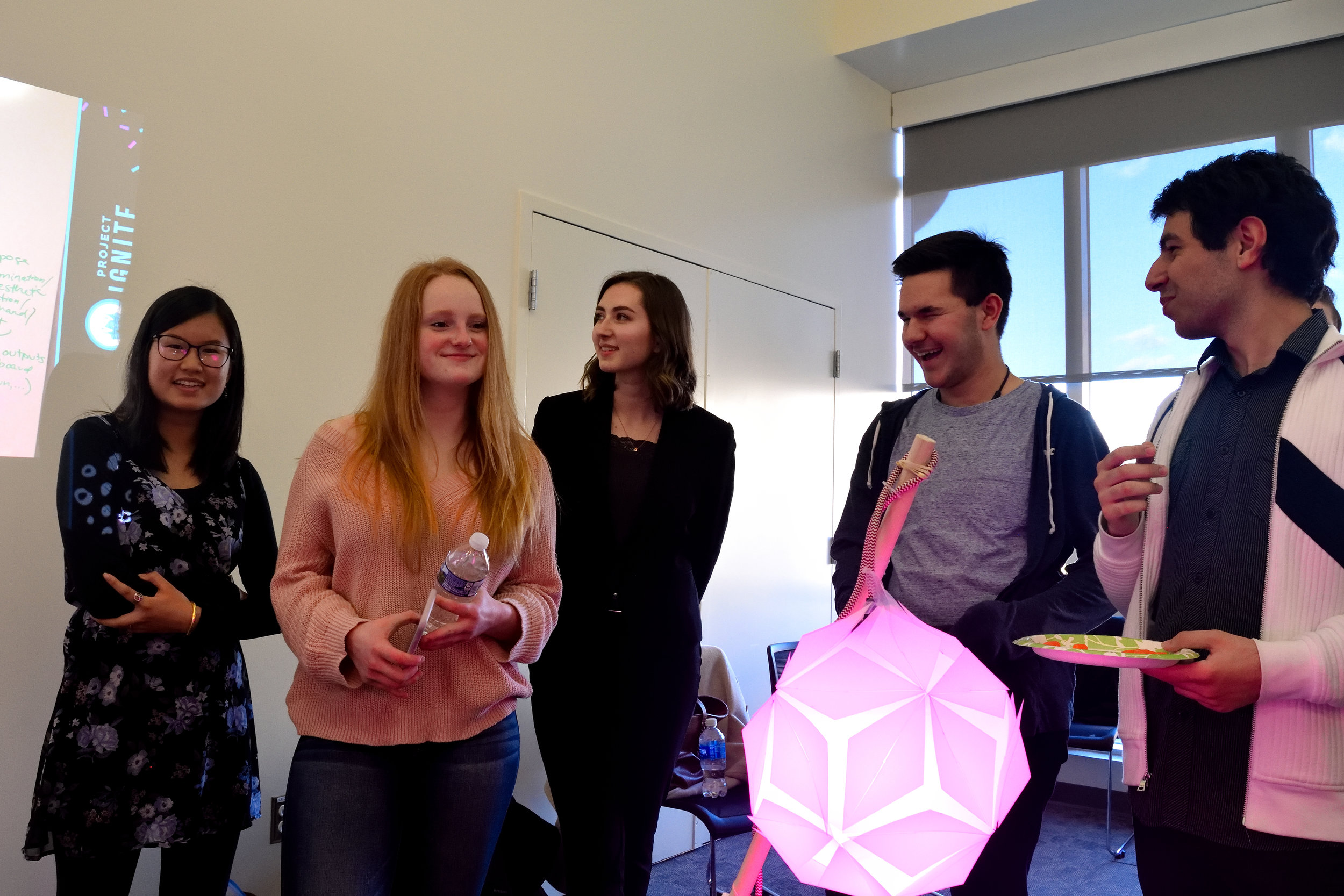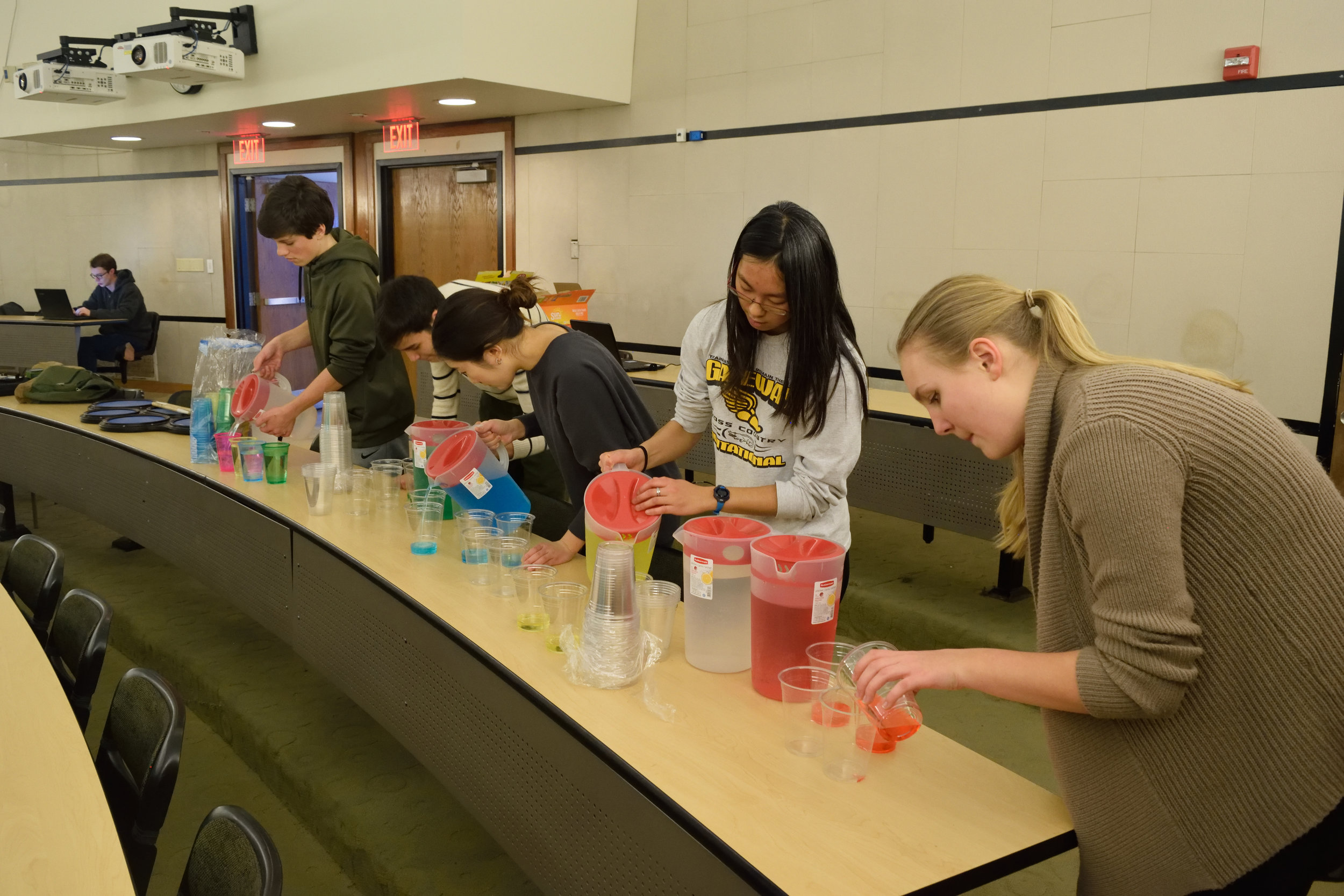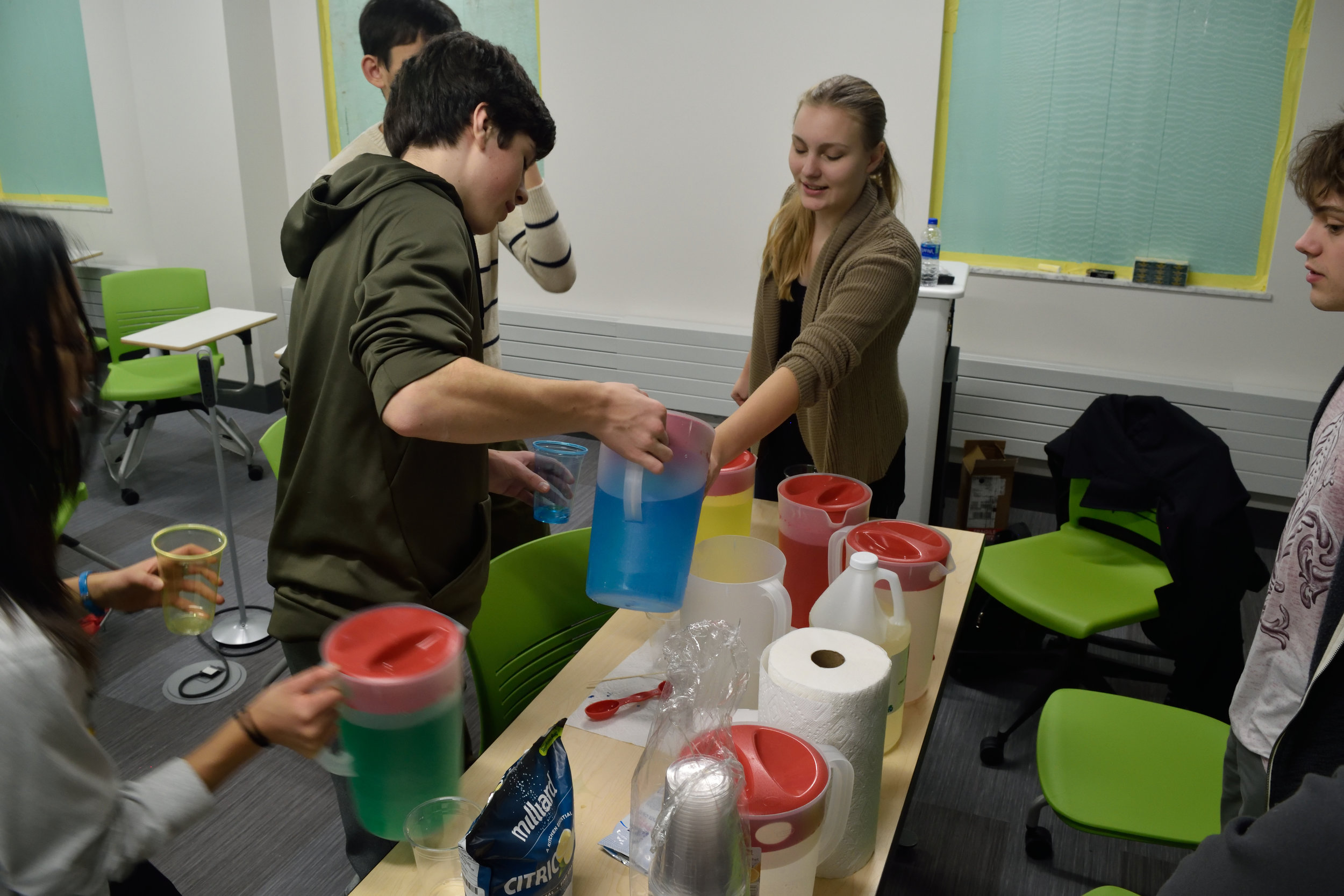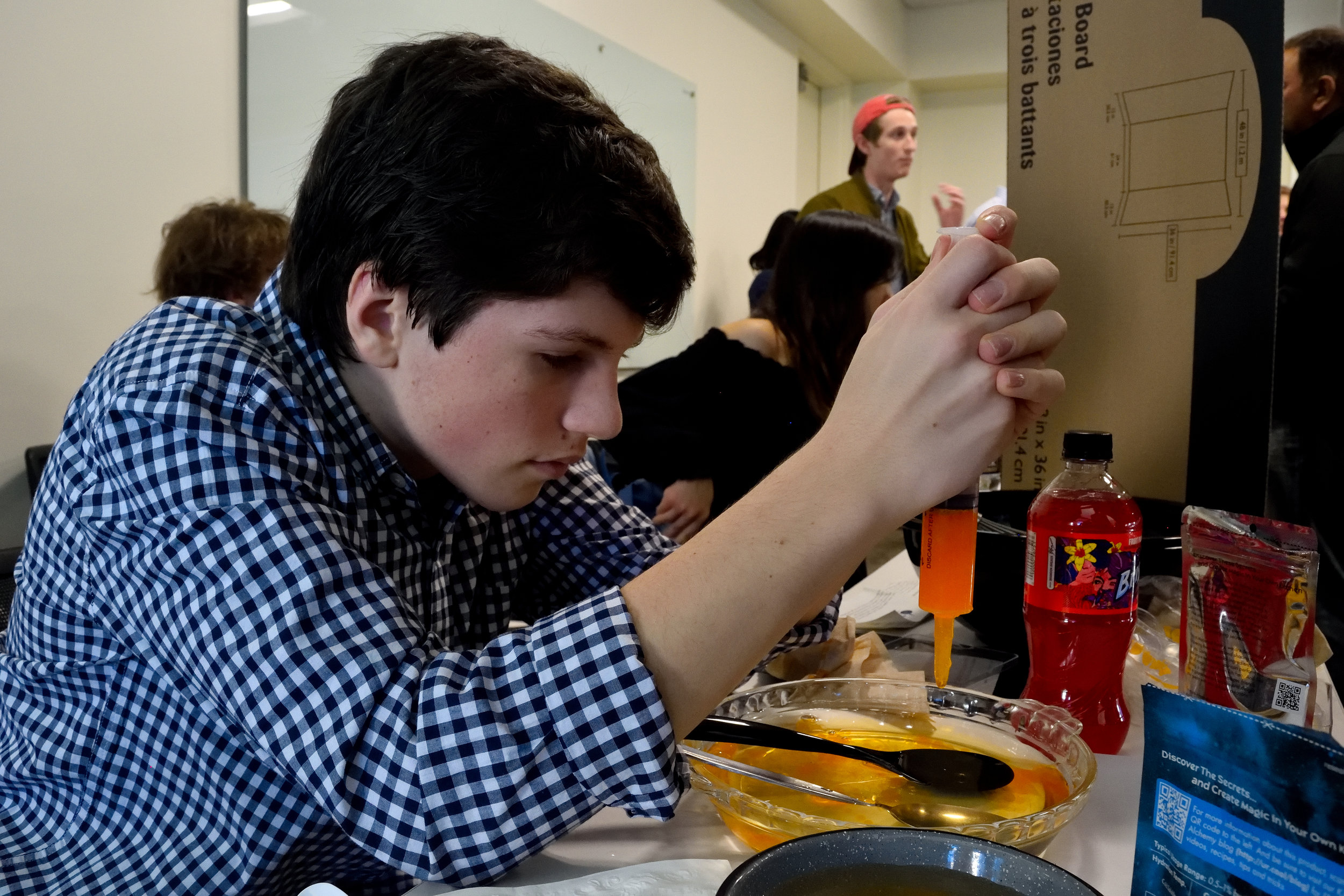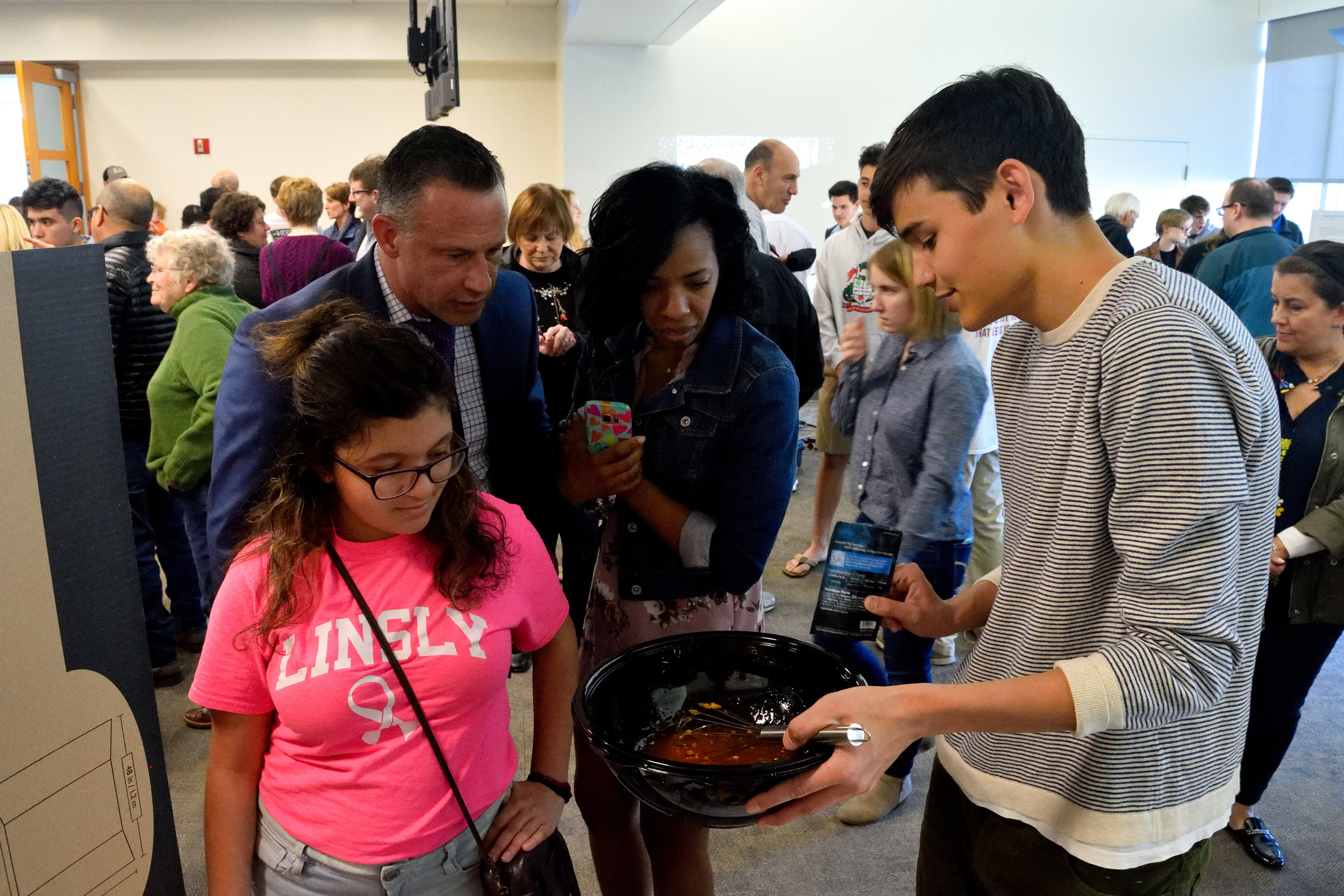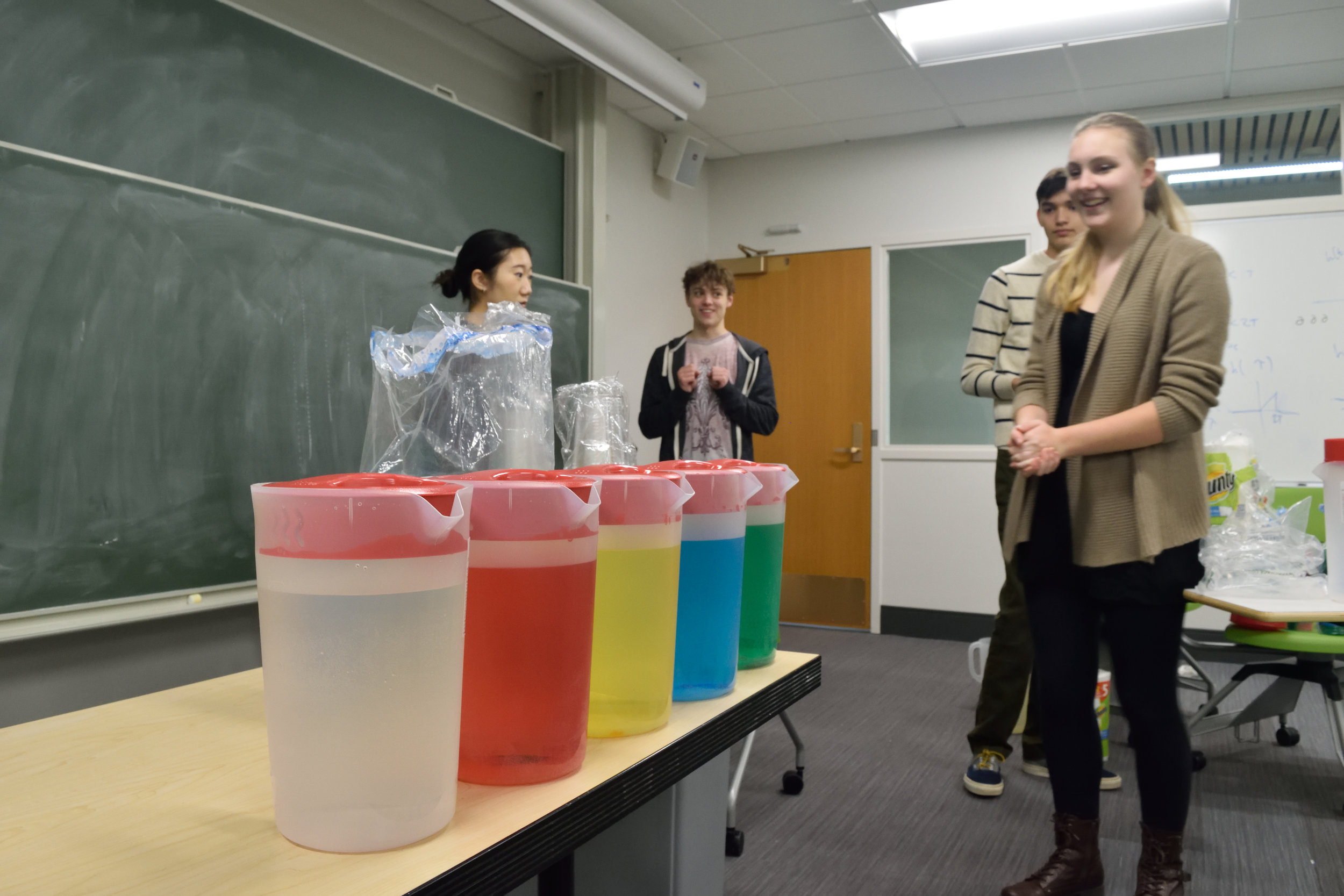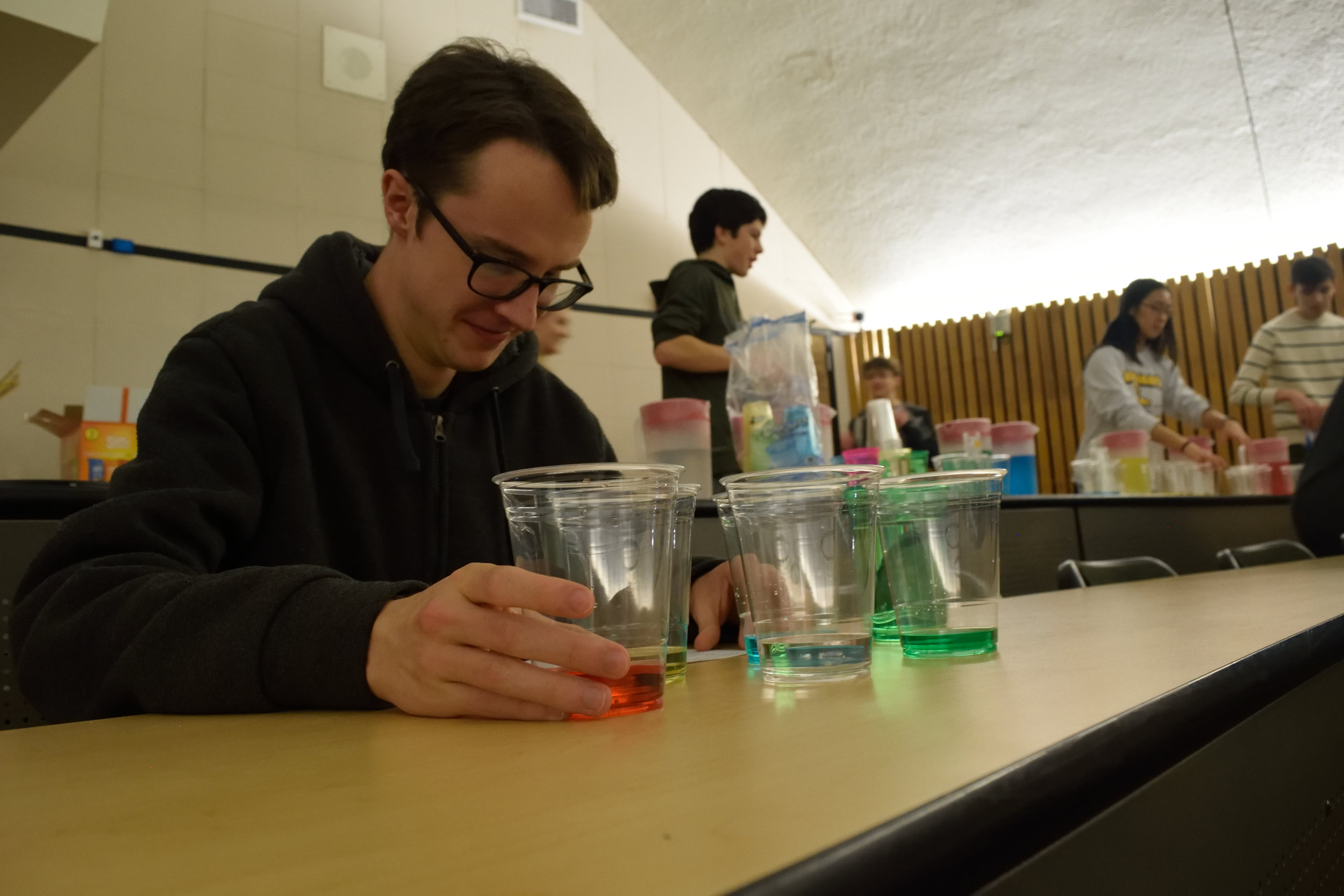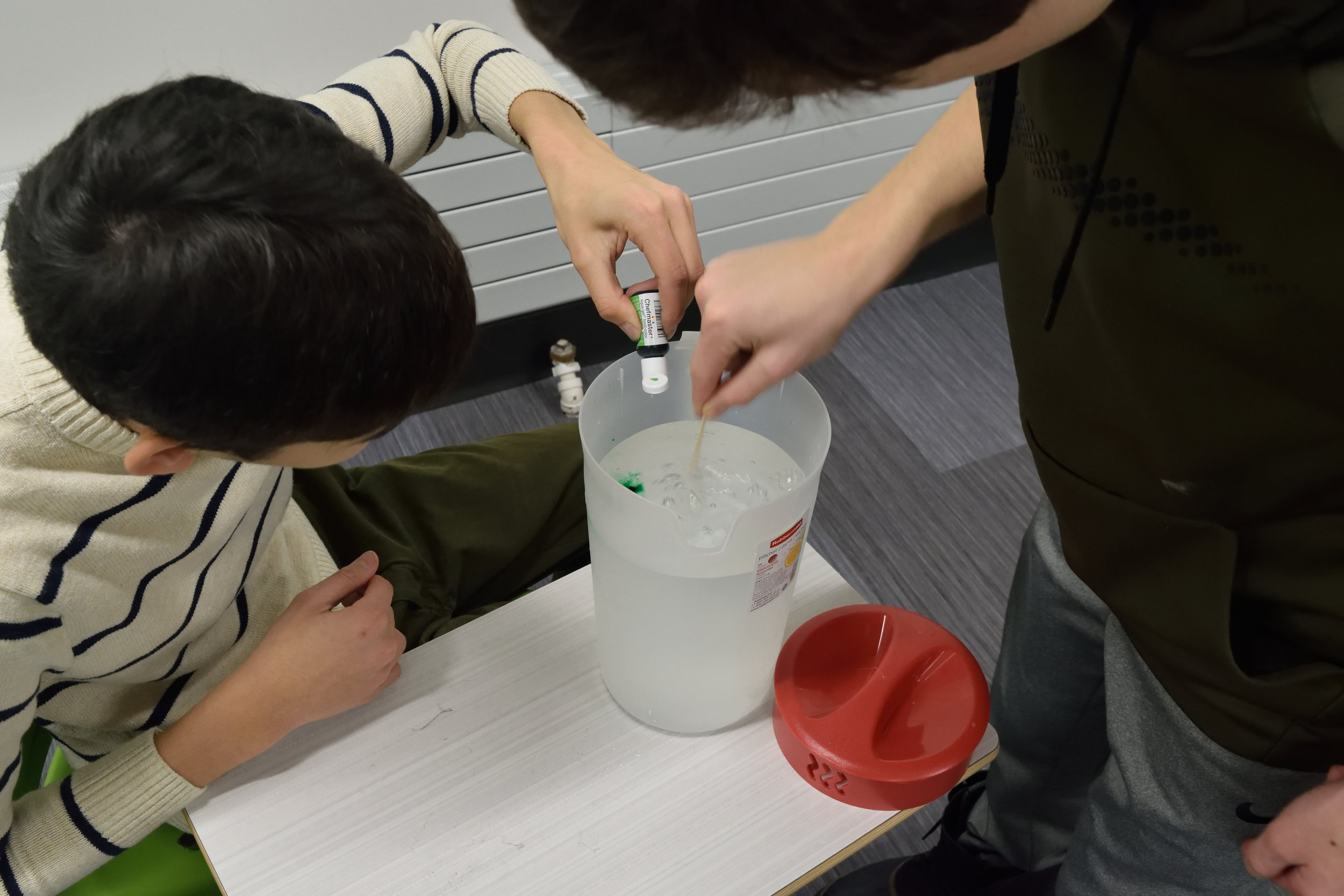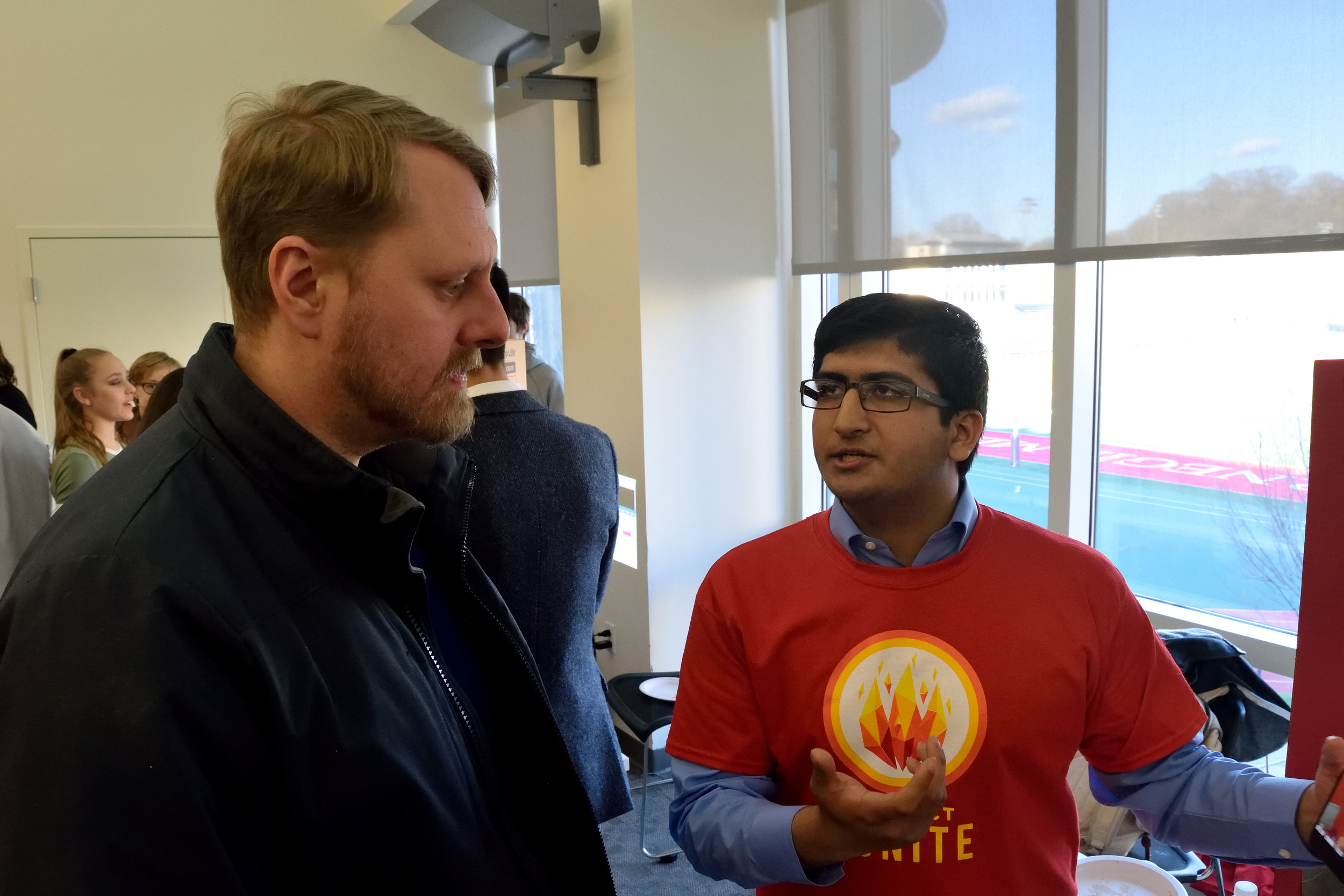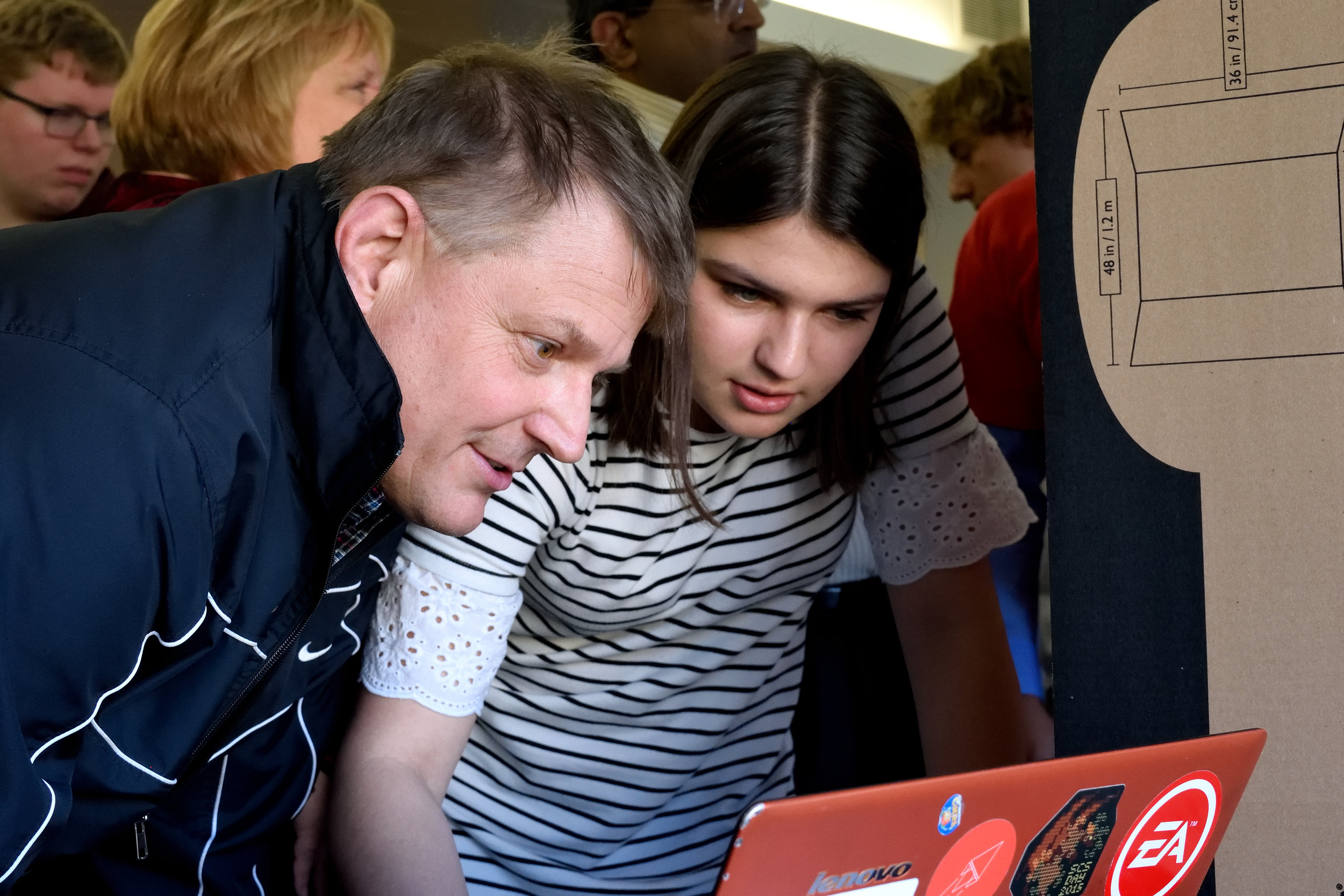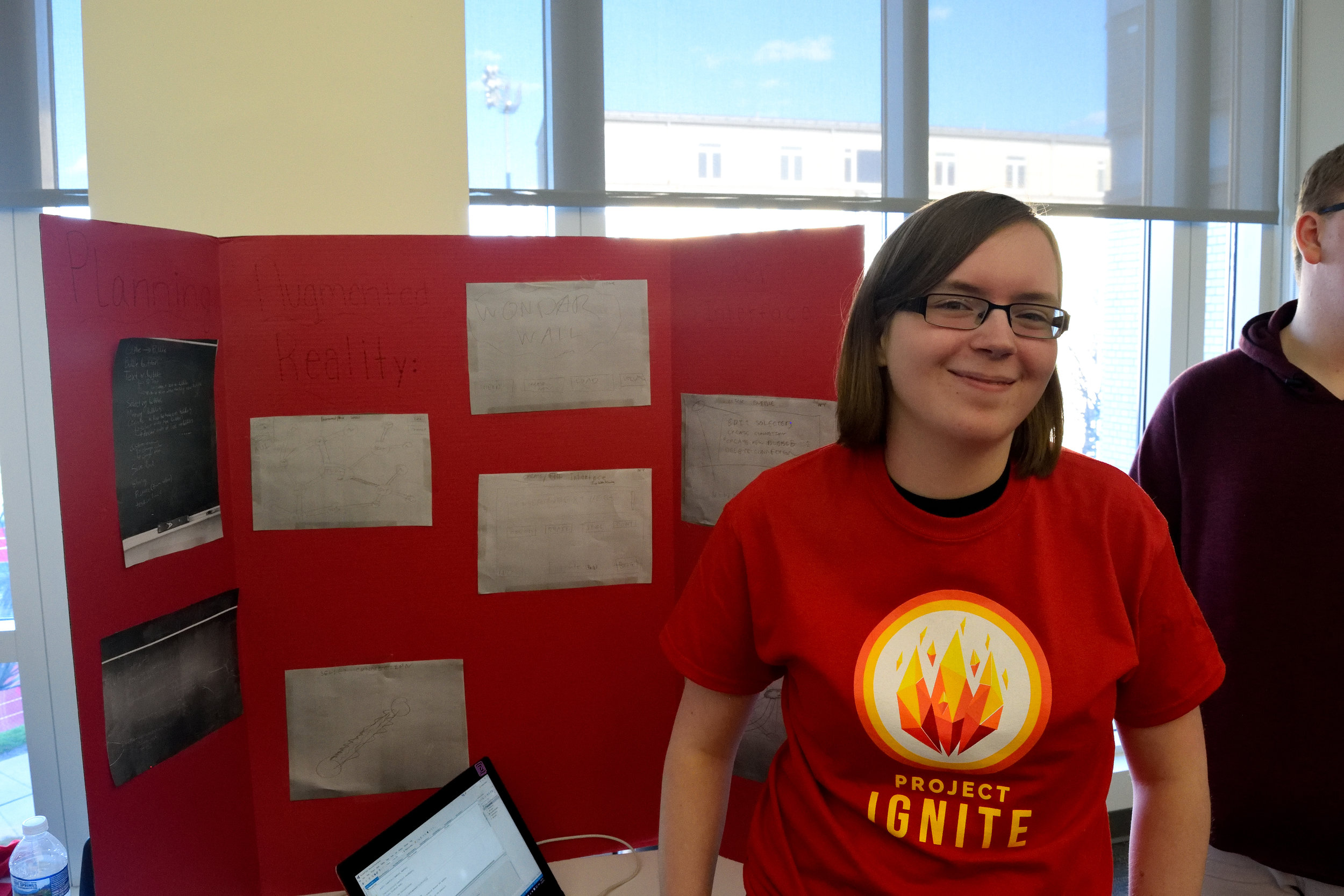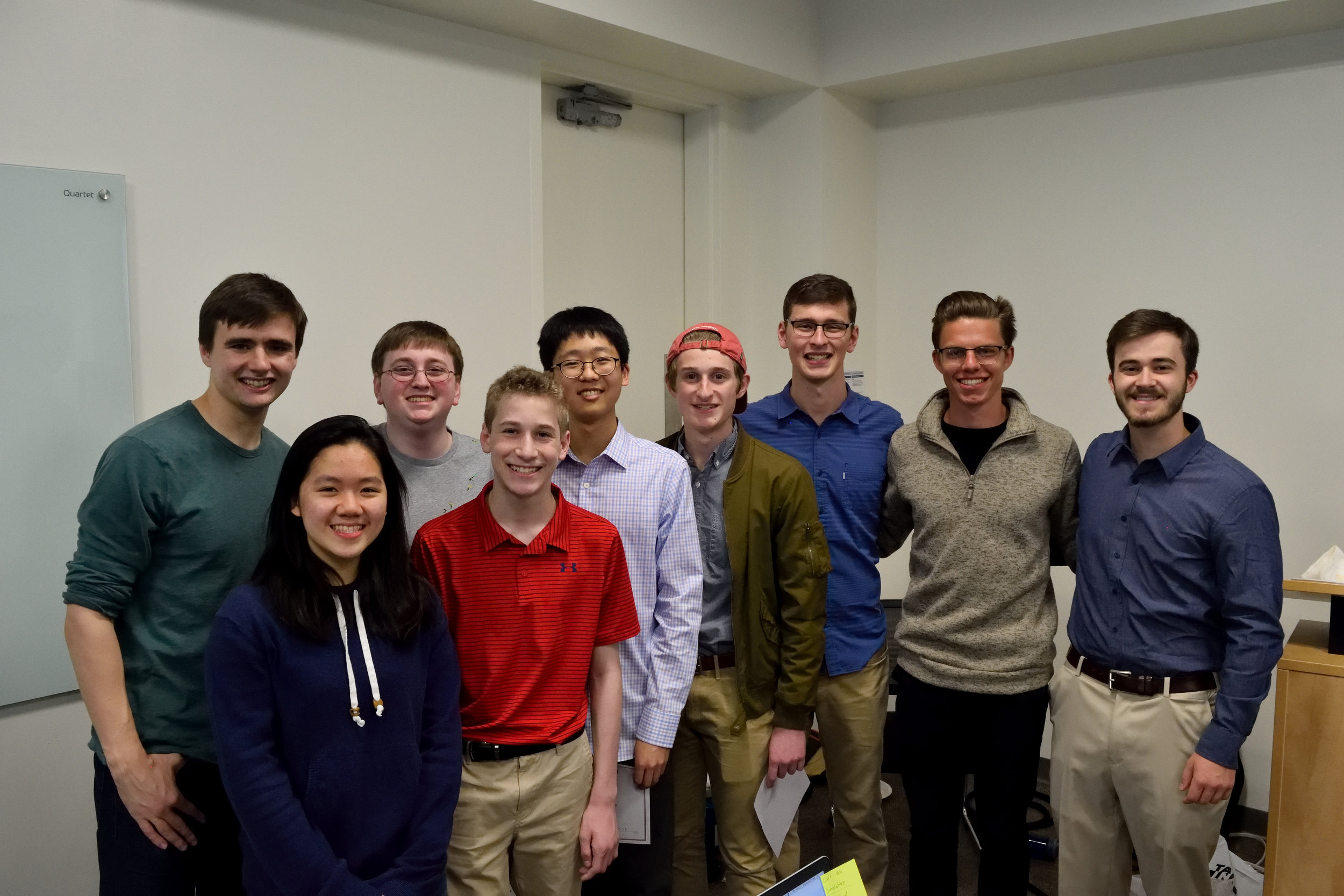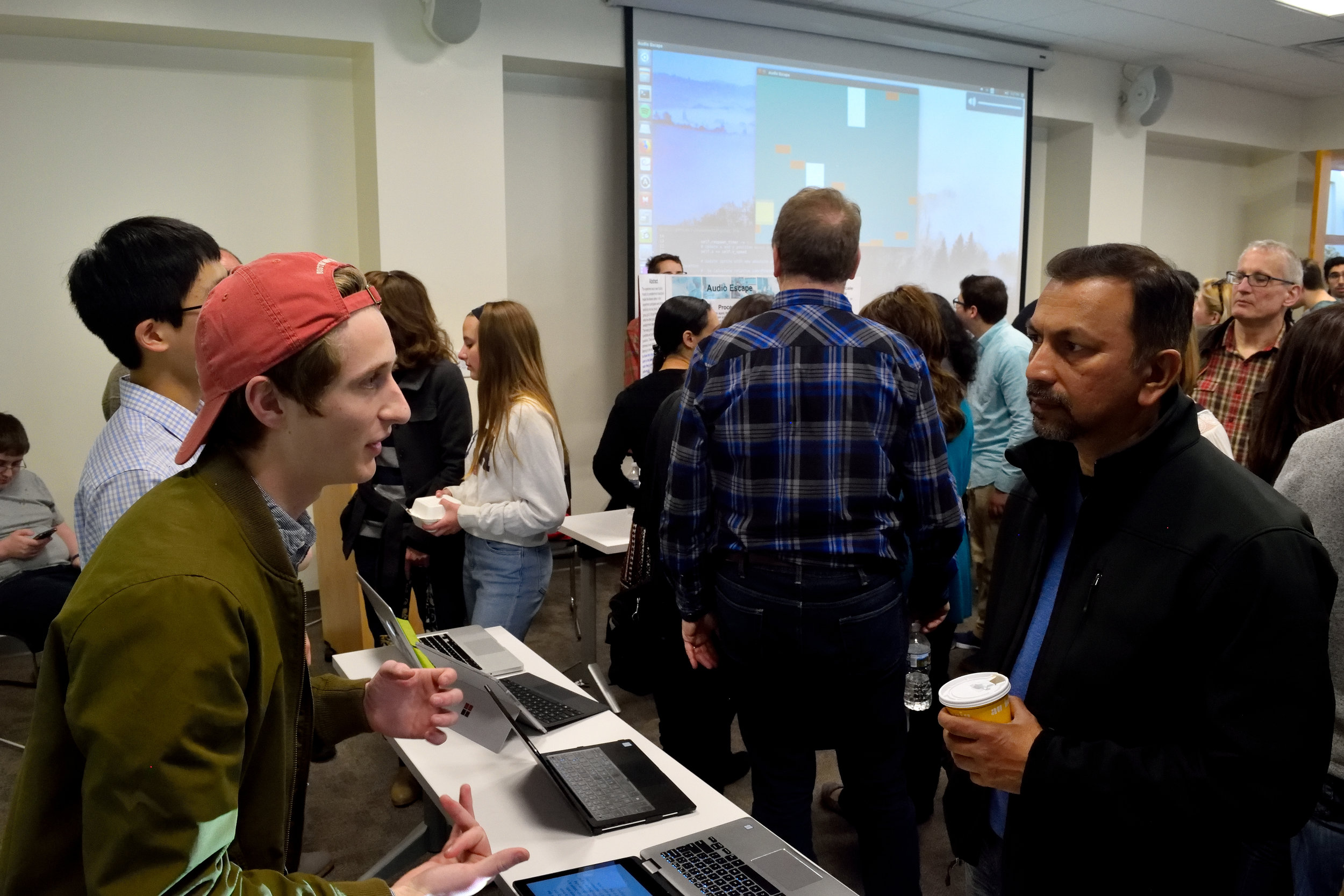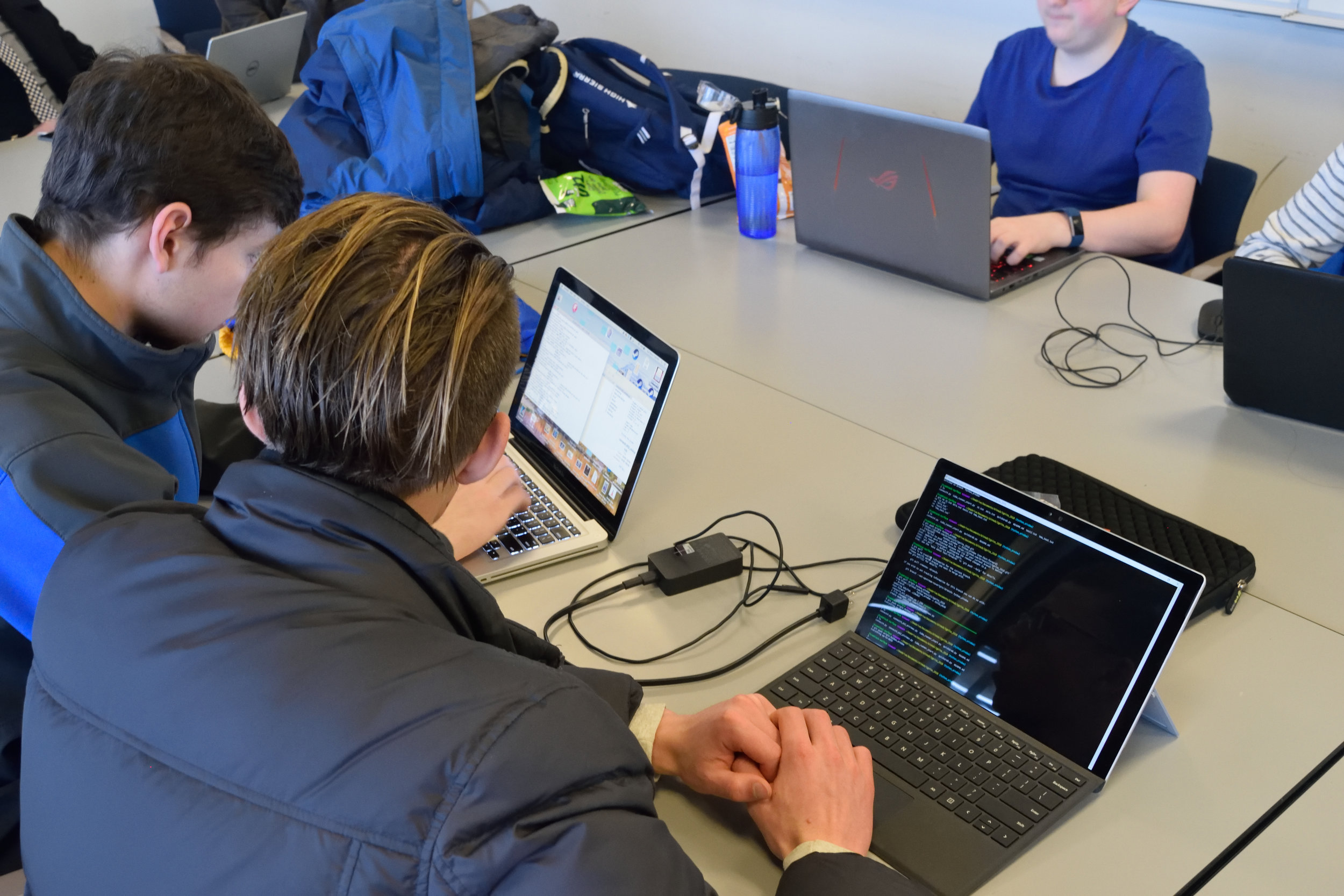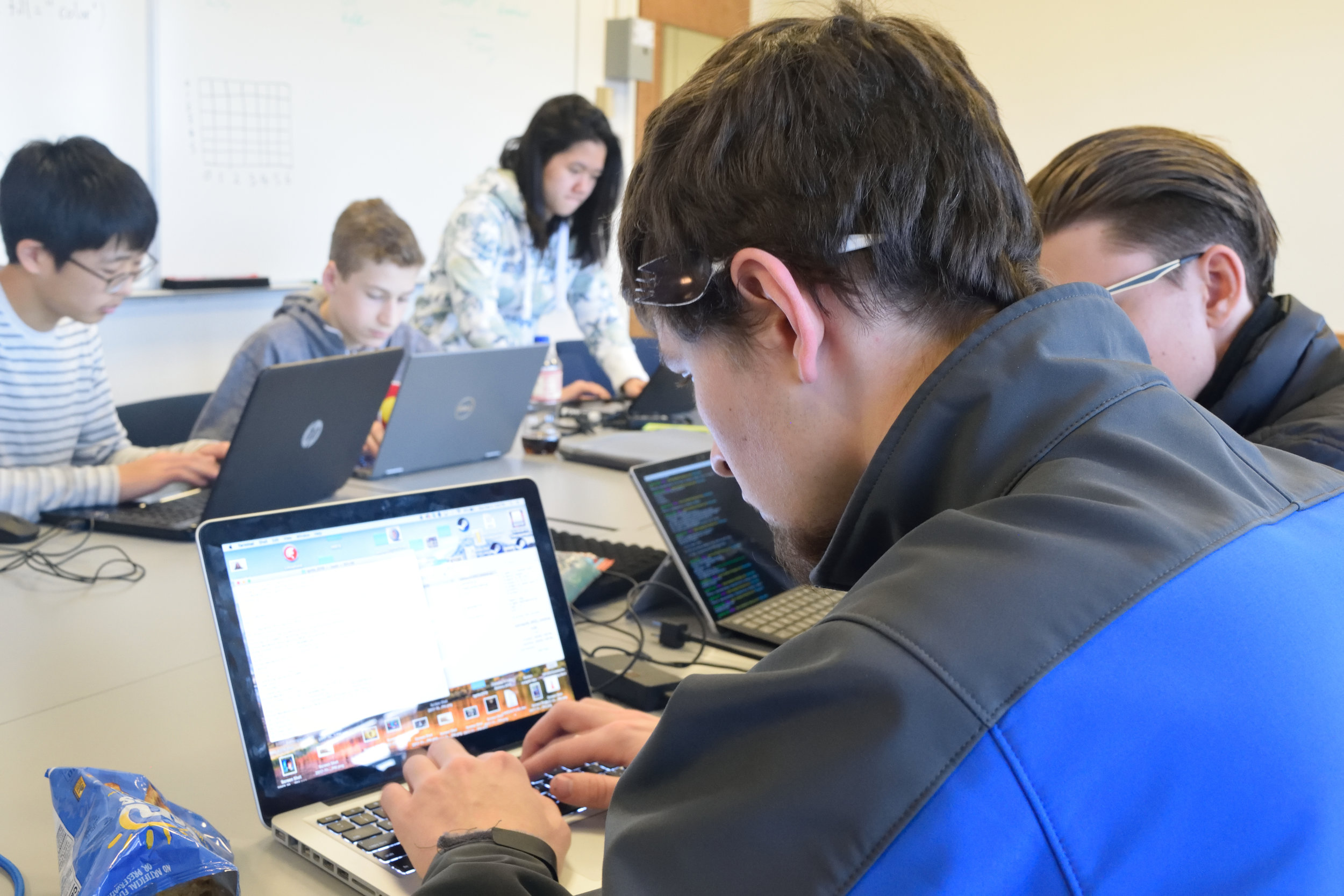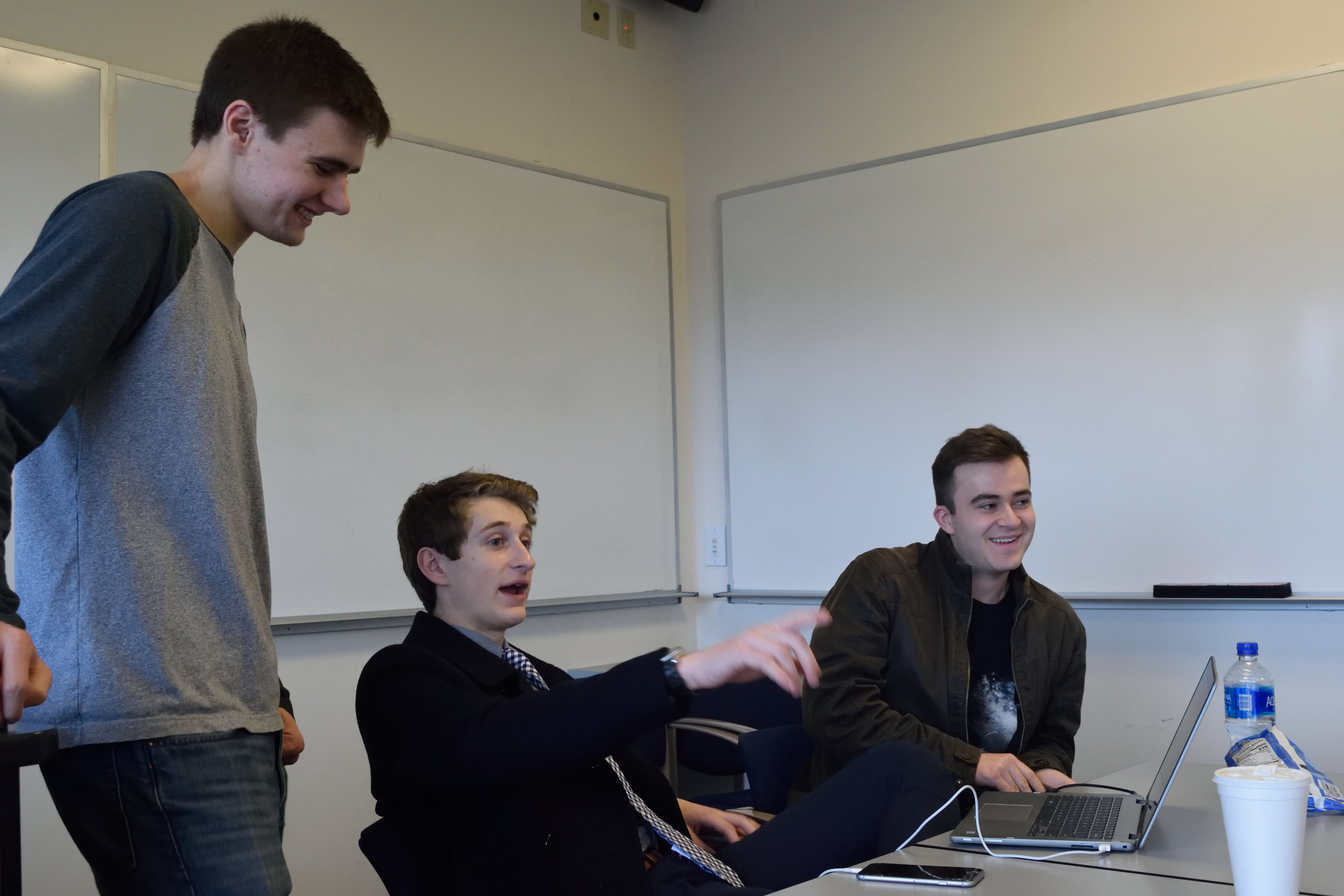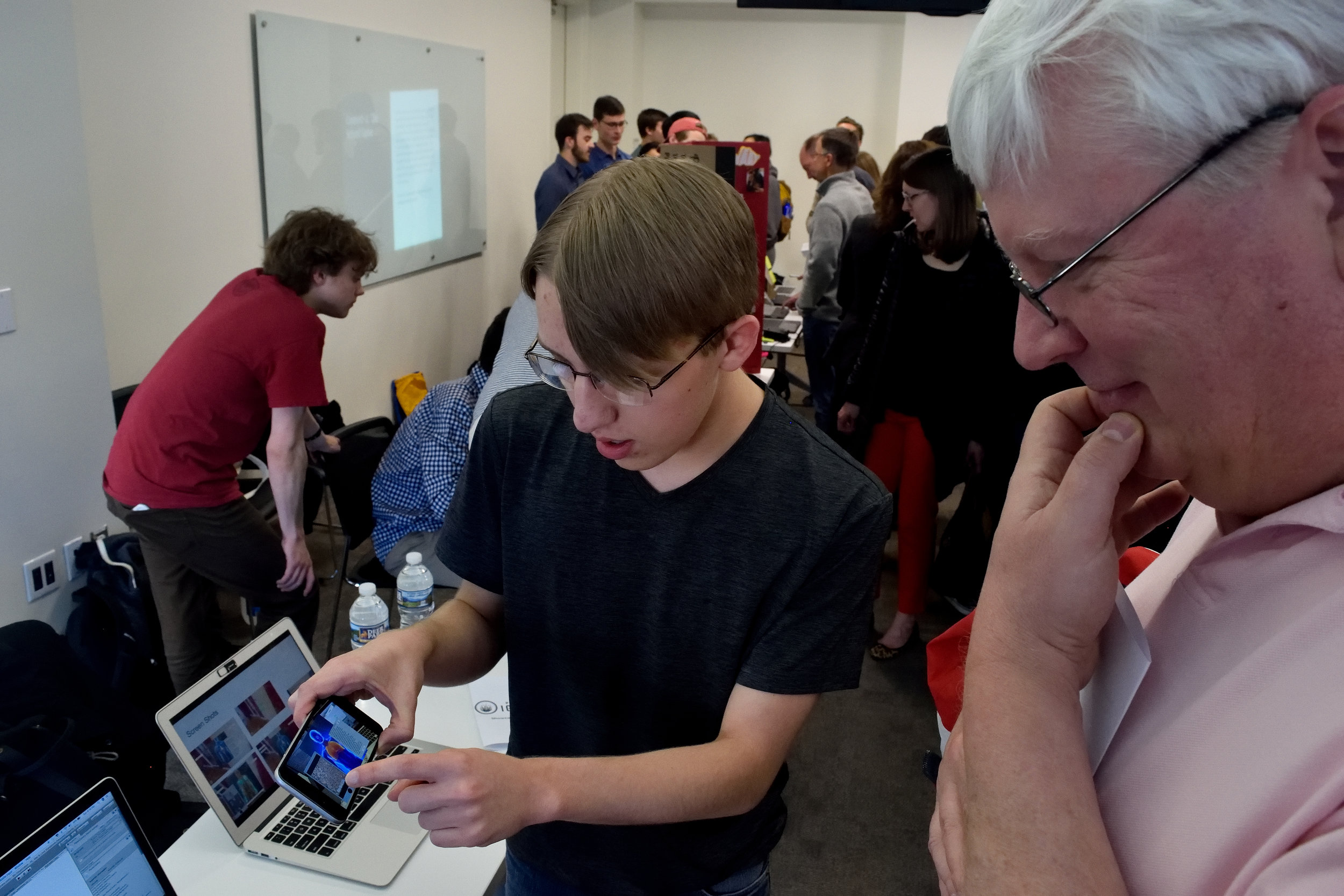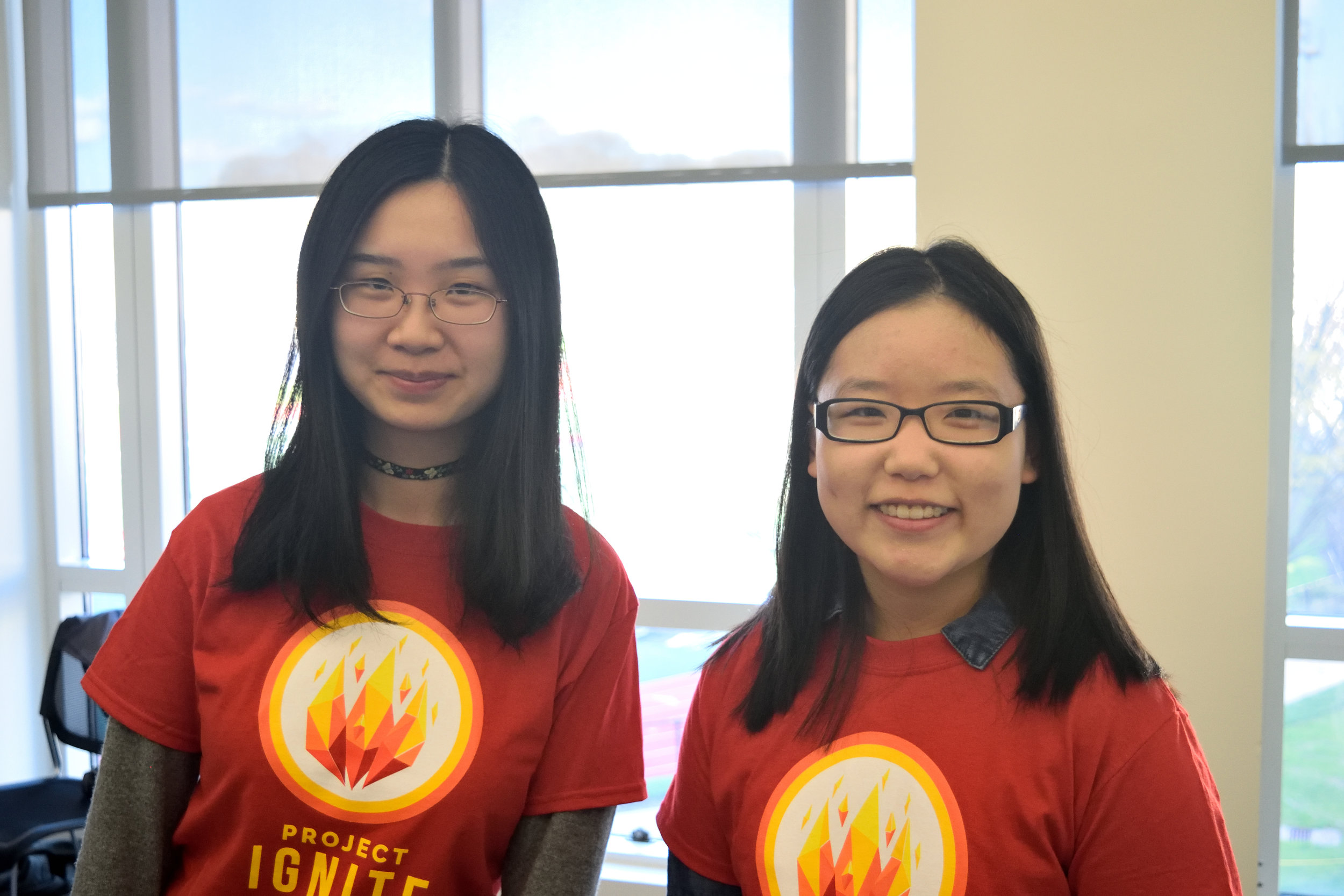Project Archive 2018
Project Archive: Spring 2018
(Click the photos to see a slideshow!)
Audio Escape
Project Advisors: Ashley Wong, Ben Kaplan, Nick Roberts
From the start, this group wanted to build a video game accessible to all; or, more specifically, a video game accessible to those outside the usual target of game developers. Intense brainstorming and ideation led us to the idea of a therapeutic video game whose environment shifts in response to user-selected music.
We successfully created Audio Escape, a rhythm-based platformer whose levels are created based on the pitches and beats of any song the user picks. Along the way, we picked up audio analysis techniques such as beat detection and the perennial Fourier transform. But we weren't satisfied with just creating the game: we performed a scientific study that supported the hypothesis that choosing your own music does have a therapeutic effect.
Environmentally-adaptable lights
Project Advisors: Ethan Rich, Oscar Dadfar, Minji Kim
The Project Advisors had very few goals for this project other than: 1) let’s have fun, 2) let’s make something cool, and 3) let everyone have a chance to learn something new. And, to achieve these goals we purposely left the project description vague other than “it had to have lights that adapted to the environment.” So, everything that came from the project was entirely from the minds of the students.
Really, our role as project advisors was the facilitate the process of going from vision to end product. For example, one of the challenges the group faced was many of them had little experience programming or working with electronics. So, we run a mini-workshop on working with Arduino where we taught them the basics of programming micro controllers and then gave them resources to learn more about the specific technologies that would form the backbone of this project.
The final product was a success! It used the Philips Hue interfaced with a web-enabled Arduino and a suite of sensors to change colors based on whether the room was well-lit or not (going into disco-mode when the lights went out!) Overall, it was a fun and exciting project and all of our students walked away with valuable skills for working as part of a product-development team.
Food Science
Project Advisors: William Fahy, Sarah Yae
This was an open-ended, inquiry based project. The first thing the students figured out is what questions they had about their world relating to food science, and we moved on from there, designing experiments to answer their questions. Using flavored water as a base, we examined the impact that color, ambient sound, and texture each have on how we perceive and enjoy food. Once we answered these questions, we then experimented with methods for preparing foods in unexpected ways, including attempts to spherify pizza and other drinks to change the texture of food. Students learned principles of experimental design and data analysis as well as some of the chemistry of food science.
Musical Instrument Noveau
Project Advisors: David Kim, Henry Nelson, Michelle Kim
Our group wanted to create a new and unique musical instrument. We decided we wanted to make an electronic instrument. Eventually, we went with creating a digital version of the typically analog electronic Theremin. Theremins function by using two metal antennas to sense the location of the users hands, adjusting the frequency and volume of the note being played.
We created a digital version of the Theremin using two ultrasonic distance sensors and a Raspberry Pi running Python code and Sonic Pi, a live-coding music synthesizer. Along the way, we learned basic breadboarding, circuit design, programming, and how ultrasonic sensors function and communicate distances. In the end, we produced a working instrument which was capable of playing simple songs.
Augmented Reality
Project Advisors: Jonathan Merrin, Archit Arora, Michelle Sun
Coming soon!
Technologically-enhanced humans
Project Advisors: Yishun Zhao, Ali Guzel
Inspired by Google Glass and the Microsoft HoloLens, our group wanted to make a headset designed to provide the user with information about their surroundings. Students were faced with the challenge of creating a headset, which projected a digital image while at the same time was transparent enough to see through.
Using a Raspberry Pi, Python, a specialized mirror and a 3D printer. Students coded, modeled, and printed a headset, which presented temperature, time, date, and humidity information to the user. Perhaps the most difficult challenge was the integration of hardware and software to create a finished product.
Video Game AI
Project Advisors: Brian Scheuermann, Tiffany Ma, Tyler Sikov
Our group started off with a broad range of video game AI, alas, we limited down to two main topics, Connect4 board game and Learning. The basis of our project was building a Connect4 AI from scratch, along with its user interface and display. The further steps were to enhance the game with learning.
Some obstacles we stumbled upon include finding an adequate estimator function that allows the computer to calculate the best move and optimizing the search to decrease search time. This project was completed with Python.
Biology Visualization
Project Advisors: Kelly Ning, Yuan Gao, Sydney Lee
Coming soon!
